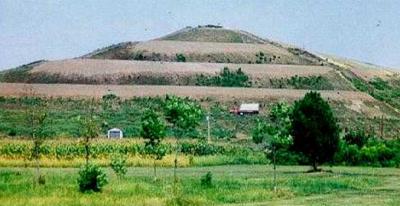Minimizing greenhouse gas emission from landfills using biocovers
Recent changes to the Earth’s climate are currently believed to be associated with changes in the composition of the atmosphere. This change is mostly attributed to anthropogenic activities that generate greenhouse gases (GHG). Methane (CH4) is one of the largest greenhouse gas contributors to the climate change. Municipal solid waste (MSW) landfills are considered as one of the major sources of anthropogenic methane emission, accounting for up to approximately 35% of the man-made methane emission in North America. Many landfills, especially in cold regions, do not produce enough gas to support conventional gas collection and treatment system (LFG). For example, the City of Ottawa has over 80 closed landfills, without any LFG collection system, ranging from small demolition sites to municipal solid waste landfills. These landfills still generate methane and other greenhouse gases, which contribute to climate change and also pose potential health and safety concerns.
This project aims to investigate the efficiency of biocover (i.e., a biologically active interim cover consisting of yard waste compost) in mitigating emissions of methane relative to conventional soil covers in Canada.
